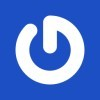Breakups can be hard, especially when it comes to handling money if you were never married. This is where palimony comes in. Palimony is like alimony but for unmarried couples. It’s financial support one partner might have to give to the other after they break up. Knowing about palimony can help explain how money issues are handled when one party to a relationship ends. Let’s look at what palimony means for couples who aren’t married.
Palimony Definition: What Is Palimony?
Palimony is financial support after ending a nonmarital relationship. When a long-term, live-in relationship ends, one partner might get financial help if they can prove there was an agreement for support—whether written, verbal, or implied.
In simple terms, palimony deals with dividing money and property for unmarried couples who live together like married couples. If one partner relied on the other for money during the relationship, they shouldn’t be left without support just because they weren’t officially married.
To get this support, one should file a palimony suit. This means going to court and proving there was a palimony agreement. However, palimony laws are different in each state. Not all states recognize palimony claims, so whether you can get this support depends on where you live.
How Palimony Works
Palimony agreements usually occur when an unmarried couple splits after living together for a while. Here’s how it usually goes:
- Proving the Relationship: The partner seeking palimony must prove that a long-term, marriage-like relationship existed.
- Agreement for Support: There must be evidence of an agreement that one partner would provide financial support to the other it can be written, verbal, or implied.
- Filing a Claim: The partner who feels they’re owed support files a claim in court.
- Court Decision: The court looks at the relationship, the agreement, and other matters of the unmarried couple before deciding on financial support.
Factors Considered by Courts
- Length of Relationship: Longer relationships increase the chances of receiving palimony.
- Financial Dependency: If one partner relies on the other financially, it boosts the palimony case.
- Contributions to the Relationship: Non-financial contributions, like taking care of the home or aiding a partner’s career, are considered.
Examples of Palimony Claim
- Marvin v. Marvin (1976): Michelle Triola Marvin sued Lee Marvin for financial support, claiming he promised to take care of her for life. The court agreed, saying agreements between unmarried partners could be enforced, setting a precedent for palimony cases.
- Cochran v. Cochran (2001): The court awarded palimony based on a verbal agreement between a couple who lived together for years. This highlighted the importance of mutual understanding and contributions in such relationships.
Palimony vs. Alimony
While both palimony and alimony involve financial support after a relationship ends, there are several important differences and clarifications to understand:
-
Marriage License
- Alimony: Financial support to an ex-spouse after a legal divorce. Requires a marriage license.
- Palimony: Financial support to an ex-partner after a non-marital relationship. No need for a marriage license because the couple was never legally married.
-
Legal Recognition
- Alimony: Accepted in all U.S. states with clear rules.
- Palimony: Recognized differently in each state, some may not accept it.
-
Common Law Marriage
- Alimony: Applies to legally married couples, even those in common law marriages.
- Palimony: Relevant for common law marriages and other non-marital relationships.
-
Establishing the Right to Support
- Alimony: Decided during divorce based on factors like marriage length and financial situation.
- Palimony: Need to prove a long-term relationship and any financial agreements made.
-
Court Procedures and Enforcement
- Alimony: Handled in family court during divorce and enforced by law.
- Palimony: Handled in civil court separately, enforcement varies by state.
Final Thoughts On Palimony
Understanding the palimony definition is important for unmarried couples who may face financial complexities after a breakup. Palimony involves the division of financial assets and providing support similar to alimony but for those who were never married. Key points to remember include proving a long-term relationship, showing an agreement for support, and the varying recognition of palimony laws across different states. If you believe you might have a claim or need to establish a palimony agreement, it’s wise to seek legal advice. A lawyer can help you get into your state’s specific laws and protect your rights and financial interests




